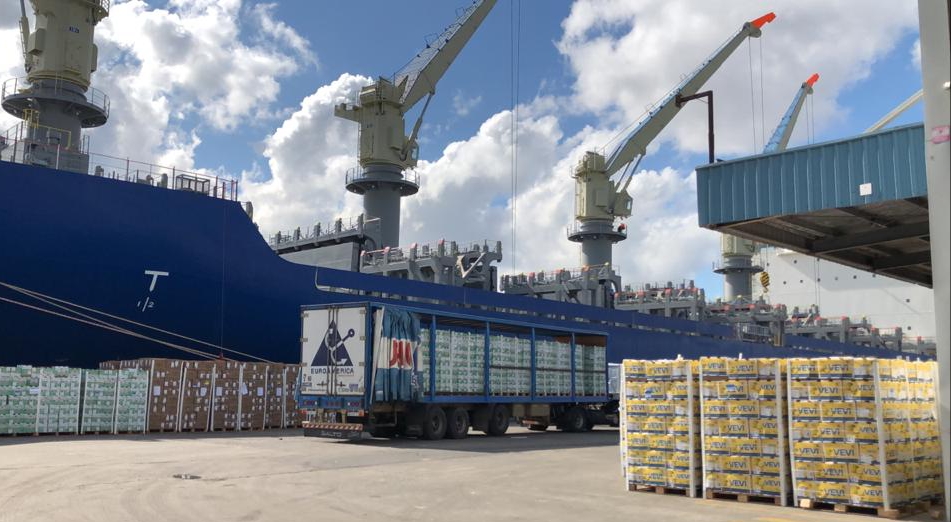Argentina sends record size citrus shipment

A historic shipment of citrus for Argentina has been reported in terms of cargo capacity and certified by Sensasa, according to the Ministry of Agriculture, Livestock and Fisheries of the Nation (MAGyP)
The cargo consisted of 7,300 pallets under the deck and another 5,000 pallets in 250 containers on deck, destined for the EU and the Russian Federation, the two main destinations for Argentina's fresh citrus fruit exports.
"The export of these regional products constitutes a new milestone for our fresh citrus fruit exports and I feel great pride for our producers," said Julián Domínguez, leader of MAGyP.
The ship left with lemons, mandarins, oranges, pears and walnuts from Port Campana in the province of Buenos Aires, Argentina.
"Thanks to the improvements that have been implemented for citrus export's phytosanitary certification and the joint work of Senasa in the private sector and the provinces, the 2021 campaign is developing normally," Diego Quiroga, national director of Senasa Plant Protection said.
The team of professionals belonging to the offices of San Pedro and Zárate carried out the phytosanitary certification of the 12,260 pallets, representing a total of almost 14,000 metric tons (MT) of fresh citrus fruit, which left in a refrigerated conventional cellar and its complement of containers on deck.
The exported shipment consisted of over 6,400 pallets of lemons, almost 5,000 pallets of oranges, 860 pallets of mandarins, 166 pallets of pears and a batch of six pallets of walnuts.
Complying with the national control and organization of phytosanitary protection, the producers, packers, shipowners, shipping companies and the entire export sector of raw materials with high added value works together to get the job done, MAGyP said.
The country produces around 3,542,000MT fresh citrus fruits annually and four out of every ten exported fruit belong to this group. Of the almost 365,000 tons exported in 2020, 68 percent were lemons, 22 percent oranges and almost 10 percent were mandarins.









































